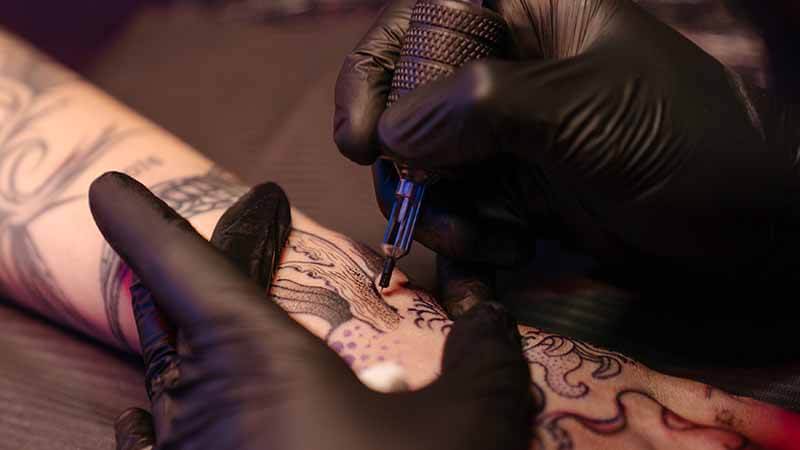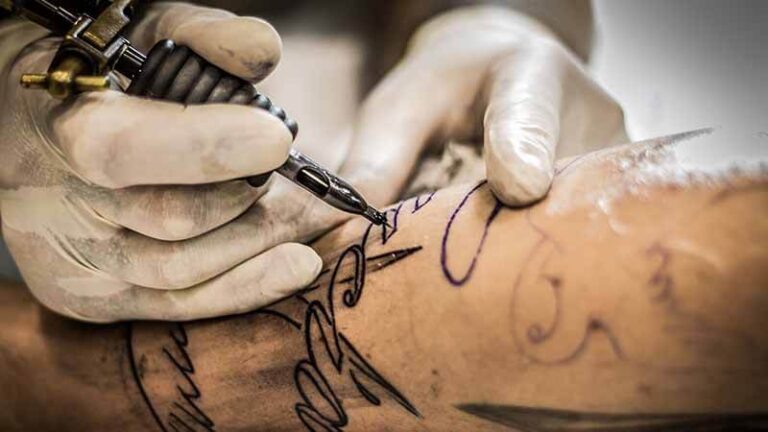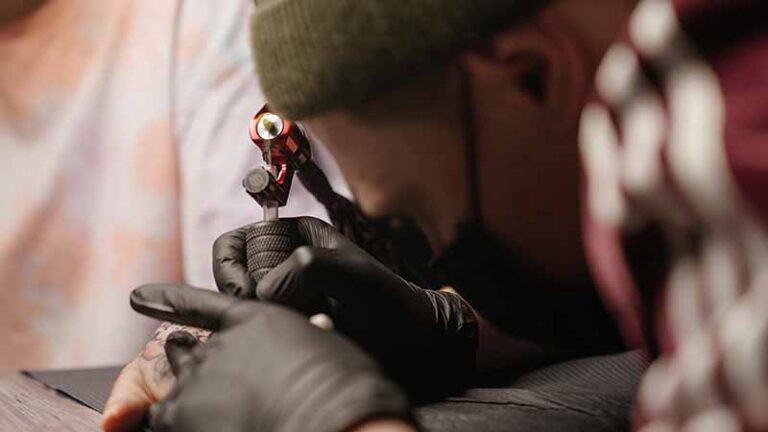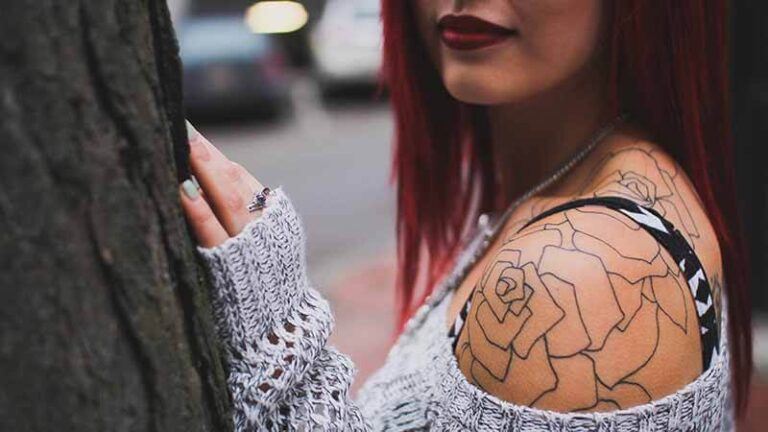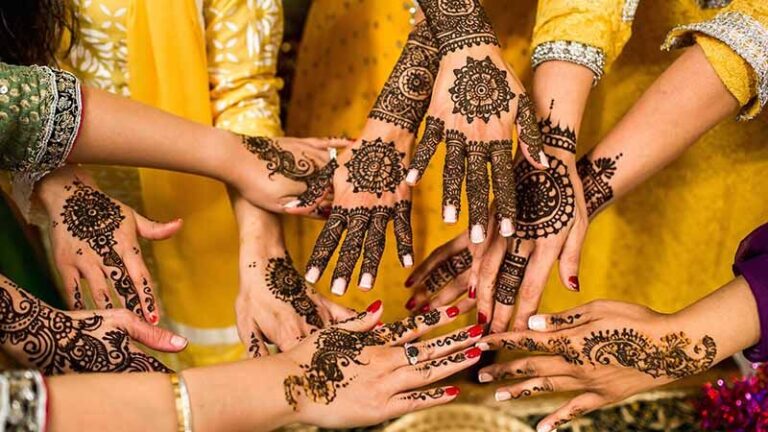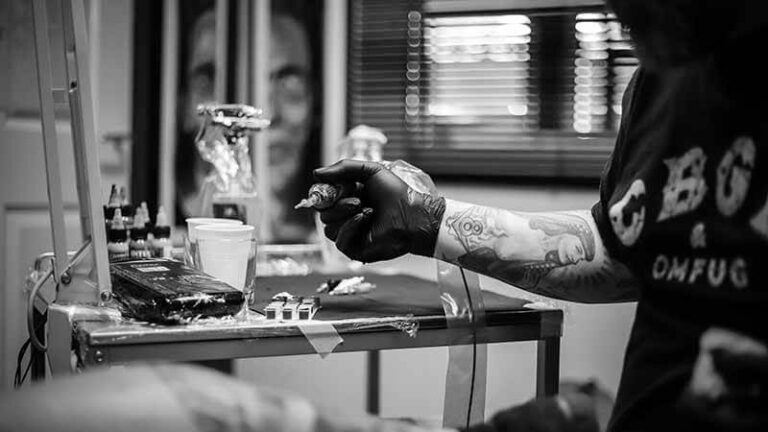Why Do People Get Tattoos?
Tattoos have been around for generations, but their popularity has skyrocketed in recent years. Tattoos were previously connected with the criminal or rebellious activity, and they were not readily accepted by mainstream culture. However, as opinions against tattoos have shifted, an increasing number of people have expressed interest in obtaining tattoos.
Tattoos have grown in popularity for a variety of reasons. One explanation is that tattoos are now more economical and accessible than ever. With the advent of tattoo culture, there is now a plethora of talented and experienced tattoo artists accessible to create beautiful and meaningful designs. Furthermore, the cost of tattoos has decreased, making it possible for more people to acquire tattoos.
Another cause for tattoo popularity is society’s growing acceptance of tattoos. Tattoos were often considered a sign of deviance or rebellion, but they are now more generally accepted as a means of self-expression. Many celebrities and public figures have tattoos, and tattoos are frequently shown in popular cultures, such as in films and television shows.
Understanding why people get tattoos is crucial because it allows us to accept and respect their choices. Getting a tattoo can be a very personal and significant experience for some people, while for others it may just be a way to improve their appearance or express their creativity. Regardless of the cause, it is critical to recognize that getting a tattoo is a personal choice that should be appreciated.
Understanding the motivations for obtaining tattoos can also help debunk some of the misunderstandings and preconceptions that have previously surrounded tattoos. Many people, for example, believe that tattoos indicate criminal or deviant behavior, whereas tattoos may be a pleasant and empowering experience for many people.
Overall, the rise of tattoos reflects societal shifts toward self-expression and individuality. We can embrace the uniqueness and inventiveness of individuals and celebrate the diverse ways in which people choose to express themselves by recognizing and respecting the motivations behind having tattoos.
Historical and cultural significance of tattoos
Tattooing is a centuries-old technique prevalent in cultures all across the world. Tattooing was first documented roughly 5,000 years ago in ancient Egypt, where mummies with tattoos on their bodies were discovered. Tattooing extended from there to other cultures, such as Polynesia, where tattoos were used to indicate rank and position within the group.
Tattoos have a long and rich history in Japan, reaching back to the 10th century. Tattoos were originally meant to label criminals as a kind of punishment, but they have now become a popular form of body art. Tattoos are still connected with the Yakuza, or Japanese mafia, in Japan, although they are also viewed as a form of art and self-expression.
Tattooing is also a major tradition among the Maori people of New Zealand. Their tattoos, known as moko, are frequently used to denote status and rank among the tribe. The tattoos are formed with a chisel and ink, which can be a painful and time-consuming operation.
Tattoos were frequently employed for spiritual and medical purposes in Native American societies. The tattoos were made using natural colors and were thought to have therapeutic properties. Tattoos were also used to represent accomplishments achievements in some tribes, such as battle or hunting success.
Tattoo meanings can vary greatly between cultures. Tattoos are seen as a source of protection or good luck in some cultures, while they are used to represent membership in a specific group or society in others. Tattoos in Polynesian cultures frequently communicate a tale about the individual’s life and experiences, but tattoos in Japanese culture frequently portray a sense of power and strength.
Tattoos are frequently viewed as a form of self-expression and personal flair in Western society. Tattoo meanings can range from remembering a loved one or a significant occasion to expressing personal ideas or values. Some people acquire tattoos for purely aesthetic reasons, such as to improve their physical attractiveness or as a kind of body art.
Tattooing has a long and varied history, with different cultures and traditions having their own meanings and customs surrounding tattoos. Understanding these cultural meanings can help us grasp the significance of tattoos in many cultures and celebrate the global diversity of body art.
Personal Expression and Identity
Tattoos can be an effective way to express one’s particular beliefs and ideals. Tattoos signify something meaningful or important in many people’s lives, whether it’s a religious or spiritual belief, a social or political cause, or a personal philosophy or mantra.
Tattoos are frequently used to express religious and spiritual beliefs. Christians, for example, may have tattoos of crosses or other religious symbols, whereas Buddhists may have tattoos of the Buddha or other spiritual icons. These tattoos can be used to convey dedication or thanks as well as to remind people of their beliefs.
Tattoos can also be used to advocate for social and political concerns. For example, someone may get a tattoo of a feminist symbol to demonstrate their support for gender equality, or a tattoo of the LGBTQ+ rainbow flag to show their support for the community. These tattoos can be used to reflect one’s values and ideas, as well as to raise awareness about relevant causes.
Tattoos can also be used to reflect personal ideologies or mantras. Someone may, for example, get a tattoo with a statement or phrase that speaks to them, or a symbol that reflects a personal philosophy or way of life. These tattoos can act as a reminder to stay loyal to oneself and live one’s principles.
Tattoos can also be an effective way to convey one’s uniqueness and ingenuity. Each tattoo is one-of-a-kind and individualized, and it can be used to express one’s individuality and style. Many people prefer to design their own tattoos, creating something genuinely unique and meaningful to them.
Tattoos can also help people regain their bodies and identities. Someone who has been through a painful experience or a significant life shift, for example, may opt to get a tattoo as a means to reclaim control of their body and display their resilience and strength.
Emotional Significance
Tattoos can be a meaningful way to remember or commemorate a major occasion. Someone might get a tattoo to commemorate a significant birthday, a wedding, or the birth of a kid, for example. These tattoos serve as a lasting memento of a good and memorable time in their lives.
Tattoos can also help people cope with grief or tragedy. For example, someone may get a tattoo to remember a loved one who has died or to commemorate an important personal battle or accomplishment. These tattoos can help you find closure, heal, and move on.
Tattoos can also provide a strong sense of empowerment and confidence. Getting a tattoo can be a method for some people to reclaim their identity and take possession of their bodies. This is especially true for those who have been subjected to body shaming, discrimination, or other forms of injustice. Tattoos can be used to exhibit one’s uniqueness and demonstrate one’s right to self-expression.
Furthermore, tattoos can help people feel more secure and at ease in their own flesh. For example, someone with scars or other physical flaws may choose to get a tattoo to cover them up and feel more at ease in public. Tattoos can also be used to accentuate certain body regions or to enhance physical traits, making people feel more attractive and confident.
Tattoos can be an effective means of self-expression and personal development. Tattoos can be a meaningful way to express oneself and create a sense of identity and purpose, whether to commemorate a major event or memory, cope with loss or trauma, or feel empowered and confident.
Social and group identity
Tattoos can be used to communicate a person’s sense of affiliation and group identity. Getting a tattoo related to a certain group or community can be a method for many people to experience a sense of connection and belonging with others who share similar values or interests. This is especially true for marginalized or minority groups, who may experience a sense of unity and empowerment as a result of common symbols and imagery.
Military personnel, for example, frequently obtain tattoos to represent their branch of service, unit, or purpose. These tattoos let soldiers feel connected to one another and exhibit pride in their service. Members of fraternal organizations or clubs, for example, may obtain tattoos to show their membership and loyalty to the group.
Tattoos can also be important in subcultures, where they can be used to show allegiance to a specific movement or way of life. Punks and metalheads, for example, frequently acquire tattoos of band logos or other symbols linked with their music and lifestyle. These tattoos are used to represent one’s identity and sense of belonging within the subculture.
Furthermore, tattoos can be used to express one’s identity and allegiance within the LGBTQ+ community. For example, someone may get a tattoo of a rainbow or another LGBTQ+ sign to express their identity and to feel connected to others who have had similar experiences.
Tattoos can also be used to indicate opposition or rebellion against popular culture. For example, someone may acquire a tattoo that represents a countercultural movement, such as punk or anarchism. These tattoos can be used to communicate dissatisfaction and to defy cultural norms and expectations.
Aesthetic reasons
Tattoos are a type of art, and many people admire the skill and imagination required to design and execute a tattoo. Tattooing involves injecting ink into the skin with needles, resulting in a permanent design that is both visually beautiful and significant to the wearer.
Tattoo artists are accomplished experts who have spent years honing their technique through training and practice. They are masters at designing designs that are both aesthetically beautiful and technically competent, and their work is widely regarded as a sort of art. Many tattoo artists, in fact, have backgrounds in visual arts, graphic design, or other creative professions, and they add a distinct perspective and level of experience to their work.
Many people acquire tattoos to improve their physical appearance as well as to appreciate the artistry behind them. Tattoos can be used to call attention to a person’s best qualities or to enhance specific body regions. Someone might get a tattoo on their bicep to show off their toned arms, or a tattoo on their back to show off their toned back muscles.
Tattoos can also be used to conceal flaws or scars, improving the appearance of the skin and increasing self-confidence. Someone who has had breast reconstruction surgery, for example, may choose to get a tattoo on their chest to cover up scars and improve the appearance of their skin.
Conclusion
Personal expression, the commemoration of major events or experiences, coping with loss or trauma, group identity and belonging, and appreciation for the art of tattooing are all reasons why people get tattoos. Tattoos can also be used to improve one’s physical appearance, express one’s personality and inventiveness, and make one feel empowered and confident.
Individual tattooing preferences must be understood and respected. Tattoos are an extremely personal form of self-expression, and what is important or significant to one person may not be meaningful or significant to another. It is critical to avoid passing judgment or criticism on the choices of others and to recognize the cultural and personal significance of tattoos.
Furthermore, it is critical to respect the individual’s freedom to make their own decisions about their body and appearance. This includes honoring their tattoo decisions, as well as the designs they choose to have permanently inscribed on their skin. While it is vital to have open and polite conversations regarding tattoos, the decision to get a tattoo is ultimately up to the individual, and it is crucial to respect their choices and autonomy.

